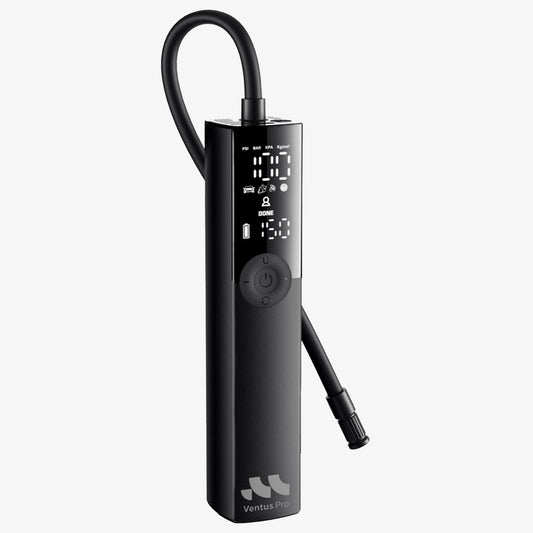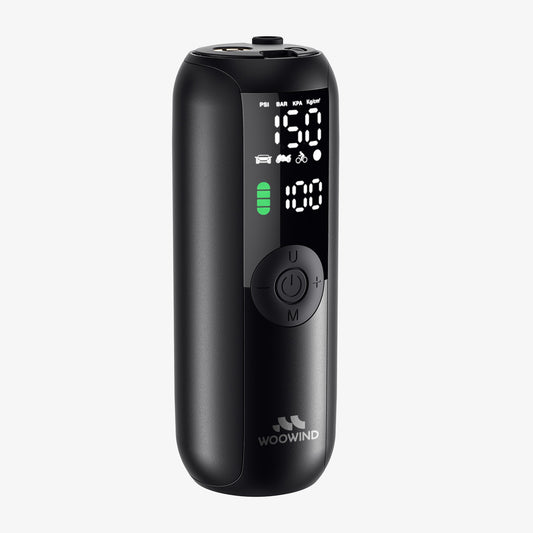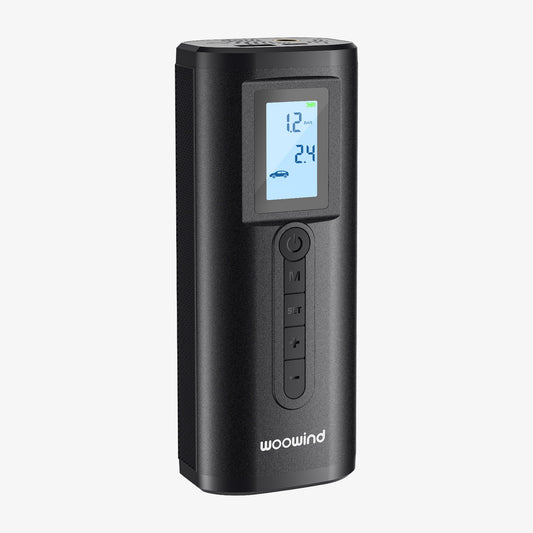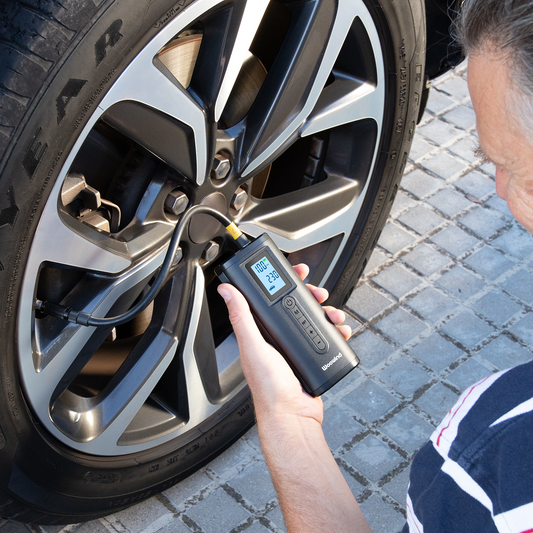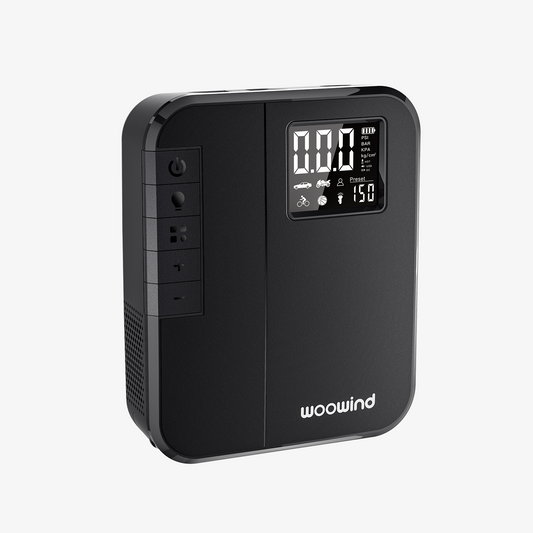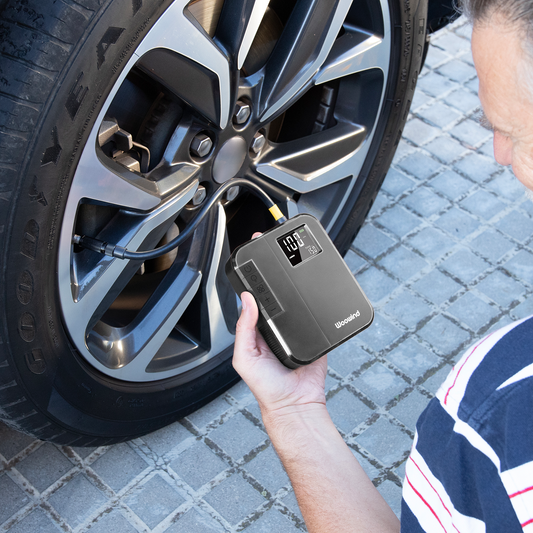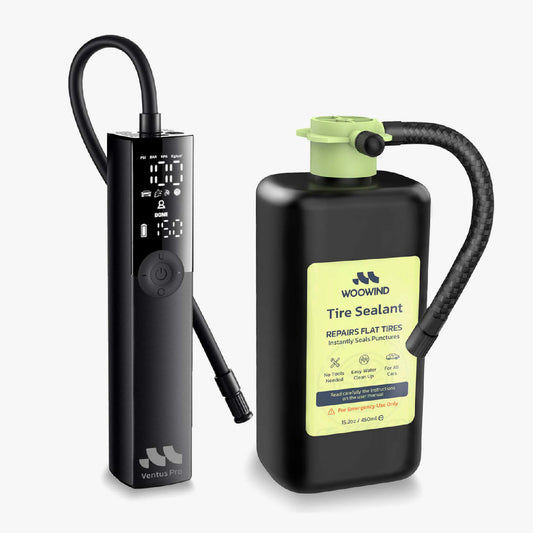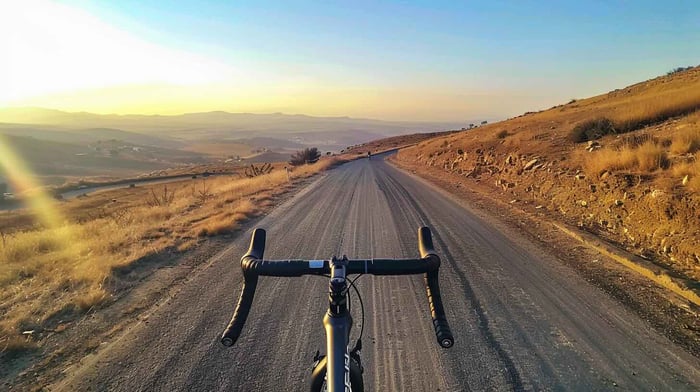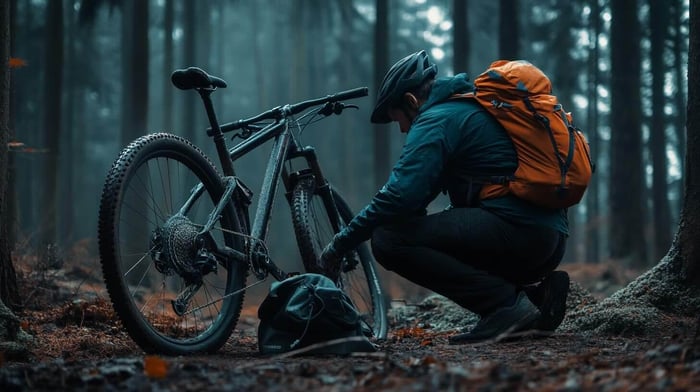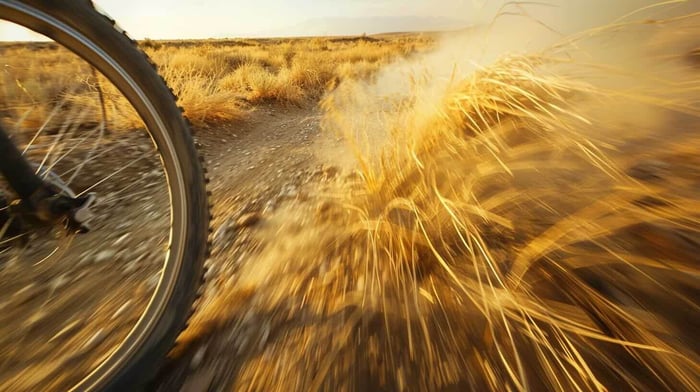
How to Take a Tire Off a Bike: A Beginner-Friendly Guide
Whether you're facing a flat or preparing for a tire upgrade, learning how to take a tire off a bike is a foundational skill every cyclist should master. With the right tools, a bit of technique, and some patience, this process is simple—even for beginners. In this guide, we’ll walk you through the steps, share insider tips, and explain how the Woowind BP188 can help get you back on the road faster.
Table of Contents
Essential Tools You’ll Need — Including the Woowind BP188 Pump
Before you begin, gather a few key tools to make the process smoother:
Tire levers (plastic, to protect the rim)
Wrench (for nut axles) or your bike’s quick-release skewer
A pump to re-inflate the tire afterward
We recommend the Woowind BP188 portable pump. With a max PSI of 120 and compact design, it’s ideal for both home use and road emergencies.
For those curious about smart pump design, the full bike air pump collection also includes tools tailored for portability, digital accuracy, and battery efficiency.
Step-by-Step Instructions to Remove a Bike Tire Safely
Fully Deflate the Tire
Open the valve and press down to release all air. A fully deflated tube reduces pressure on the bead and rim.Detach the Wheel from the Frame
For quick-release wheels: Flip the lever and unscrew slightly.
For bolt-on wheels: Use a wrench to loosen nuts counterclockwise.
Insert Tire Levers
Start opposite the valve. Insert the first lever between the rim and tire, then hook it onto a spoke. Use the second lever to pry more of the bead off.Work Around the Rim
Gently slide the second lever around the rim until one side of the tire pops off.Remove the Inner Tube and Tire
Pull out the inner tube (starting at the valve), then remove the tire completely.
Tips for Removing Tight or Stubborn Bike Tires Safely
Don’t rush. Forcing the lever can pinch the tube or scratch the rim.
Use warm water to soften the tire rubber in colder conditions.
Lightly step on the sidewall to help break the bead away from the rim.
Start at the furthest point from the valve for the best leverage.
Tight fits are common on new or high-pressure road tires. Using two levers and a bit of patience always beats brute force.
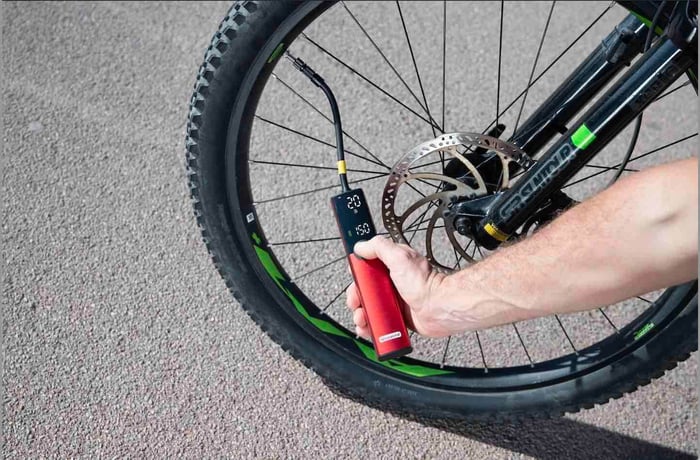
After the Tire’s Off: Tube Inspection & Reinflation
Once the tire is removed:
Check the tube for punctures or aging (cracks or stiffness)
Inspect the inside of the tire for sharp debris (glass, thorns, wire)
Wipe the rim clean before reinstalling a new or patched tube
Not sure what size you’re working with? See this guide on how to measure bike tire size to avoid compatibility issues.
When ready, use your Woowind BP188 to reinflate the tire accurately. Its digital display and auto shut-off make it easy to hit the right PSI without overinflating. To fine-tune your pressure, refer to this article on what PSI should bike tires be.
Common Mistakes to Avoid When Removing Bike Tires
Forgetting to deflate the tire fully
Using metal tools instead of plastic levers
Pulling the tire bead near the valve first (increases risk of damage)
Skipping inner tube inspection before reinstalling
A little care during tire removal saves time and prevents repeat flats.
If you're looking for more pump solutions for different riding needs, explore our full electric air pump lineup.
Conclusion
Now that you know how to take a tire off a bike, you’re one step closer to mastering basic bike maintenance. Keep tools like the Woowind BP188 on hand, and you’ll be ready to handle tire issues at home or on the go.
FAQs
Can I remove a tire without tire levers?
Yes, but it’s more difficult. You risk pinching the tube or scratching the rim. Plastic levers are safer and easier.
Should I remove both sides of the tire from the rim?
Usually just one side is enough to take out the tube. Full removal is only necessary if you're replacing the tire itself.
How often should I replace my bike tires?
Check tread wear, sidewall cracks, and age. Road tires last ~3,000 km, mountain ~1,500 km, depending on usage.
What PSI should I inflate my tires to after reinstalling?
It depends on the tire size and riding style. Road tires: 80–100 PSI; MTB: 30–50 PSI. Always check the sidewall for guidance.
Is Woowind BP188 suitable for all bike types?
Yes. It supports up to 120 PSI and includes multiple nozzles for road bikes, mountain bikes, and even kids' bikes.
